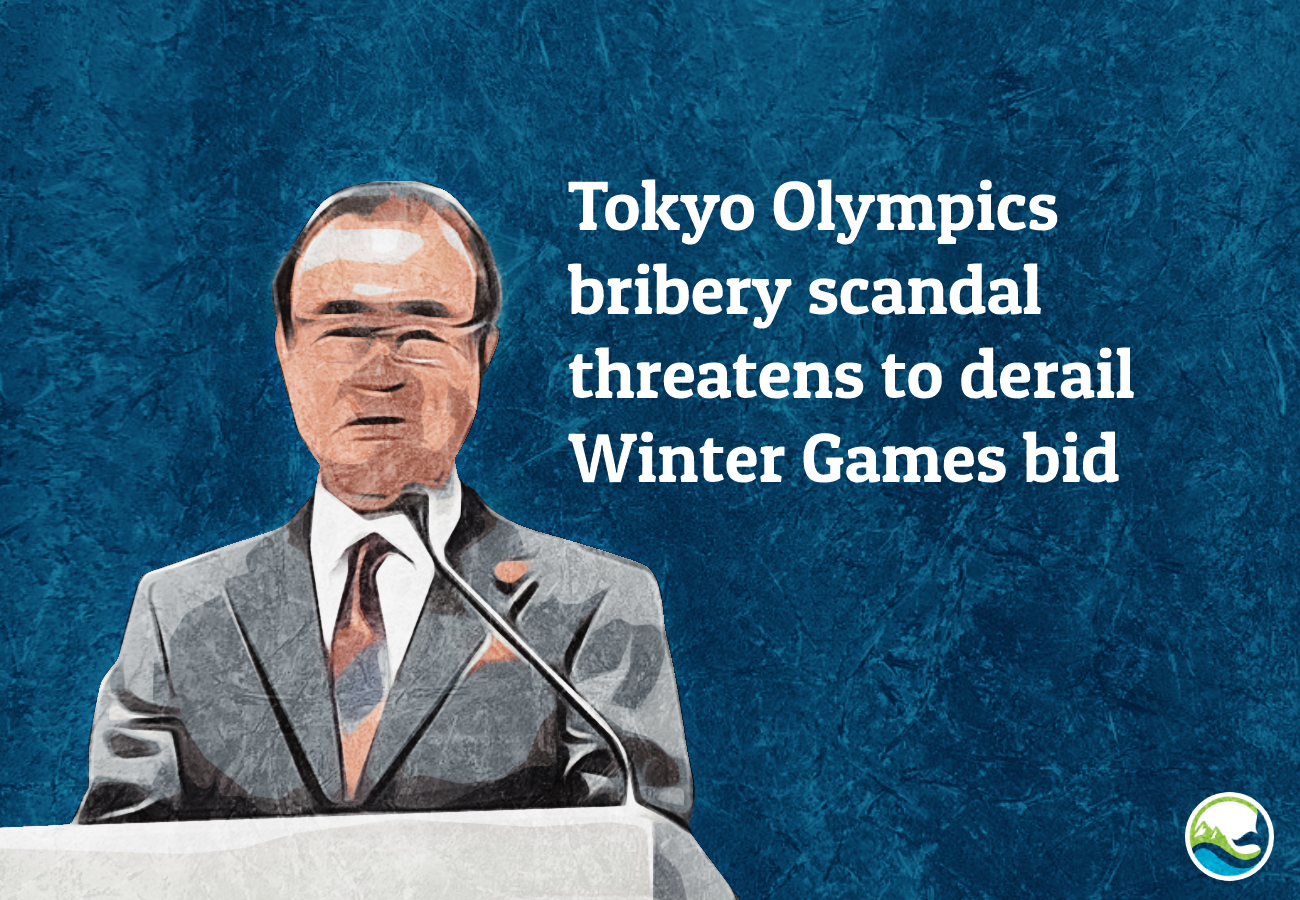
Tokyo Olympics bribery scandal threatens to derail Winter Games bid
07 Dec 2022 ( The Guardian )
More than a year after the Tokyo Olympics were held in the middle of the Covid-19 pandemic, their legacy has been overshadowed by a bribery scandal that threatens to derail a bid by another Japanese city to host the Winter Games.
This summer, as officials in Sapporo, on Japan’s northernmost main island of Hokkaido, promoted their bid for the 2030 Games, police arrested Haruyuki Takahashi, a former Tokyo Olympics executive, on suspicion of taking bribes in return for helping companies become official sponsors for last year’s event.
Seiko Hashimoto, who replaced Yoshiro Mori as head of the Tokyo 2020 organising committee after her predecessor made sexist remarks about female sports administrators, this month acknowledged the corruption allegations could negatively affect Sapporo’s chances.
Describing the situation as “very severe”, Hashimoto said she hoped investigators would get to the bottom of the 2020 allegations as soon as possible. “The significance and value of the Tokyo Games have come into question,” she added, according to Kyodo news agency.
Takahashi, who is believed to have had a key role in selecting sponsors, was last month indicted for a fourth time, with the former senior managing director at Japan’s biggest advertising agency, Dentsu, suspected of accepting 198m yen (£1.2m) in bribes from five firms. He has denied the allegations.
In all, 15 people have been indicted over the scandal, including the former president of a Tokyo-based doll-maker that produced the Olympic and Paralympic mascots, as well as former and current executives from Aoki Holdings, a suit retailer that supplied the Japanese team’s uniforms, and a publishing firm and advertising agency.
Mori, a former prime minister, volunteered to be interviewed by prosecutors in September amid reports that Aoki had given him money. Prosecutors said Mori had been questioned as an unsworn witness and not as a suspect.
In a separate development, police raided Dentsu’s headquarters late last month in connection with allegations that bids had been rigged to decide which companies worked on test events for the Tokyo Games, which were postponed by a year due to the coronavirus pandemic.
Dentsu was instrumental in helping Tokyo win the 2020 Games when the International Olympic Committee (IOC) decided the host city in 2013. The company then secured record domestic sponsorship worth about 376bn yen (£2.25bn) – three times that raised for London 2012, the previous record-holder.
Involvement in the pre-Olympic test events would have put companies at a distinct advantage when it came to selecting firms to work on events during the 2020 Games.
“We continue to fully cooperate with this investigation,” Dentsu said in a statement. Aoki Holdings previously said it would cooperate with authorities.
Sapporo last hosted the Winter Olympics in 1972 and had been hoping the Tokyo Games, which were mostly held behind closed doors but ended without triggering a major Covid outbreak, would strengthen its bid.
Sapporo is generally seen as having a stronger case than its only rival, Salt Lake City, but its campaign has been overshadowed by negative headlines about Tokyo 2020. Vancouver dropped its bid in October after it failed to receive support from the British Columbia government. The IOC is due to decide the host city next October.
In October, the mayor of Sapporo, Katsuhiro Akimoto, and the president of the Japanese Olympic Committee, Yasuhiro Yamashita, abruptly cancelled a visit to the IOC headquarters in Lausanne, Switzerland, to promote the city’s bid. Yamashita claimed the decision had no connection with the bribery allegations, blaming “scheduling issues”.
Michael Payne, who is credited with using sponsorship to transform the IOC’s brand and finances as its director of marketing from 1989 to 2004, has said the bribery scandal is unlikely to affect Sapporo’s “technically very strong bid”.
“I think of this very much as a local, political issue,” Payne told Agence France-Presse after Akimoto’s cancelled visit. “It raised eyebrows as to why they’re making such a meal out of what frankly is minor sponsor influence-peddling.”
Although a survey conducted earlier this year found most Hokkaido residents supported the 2030 bid, Sapporo has rejected calls for a citywide referendum.
The Asahi Shimbun said the scandal pointed to a “crucial lack of commitment to fairness and transparency”.
“If the allegations turn out to be true, this is an extraordinary scandal involving almost all the parties among those awarding and receiving contracts. It is no wonder that the scandal is evoking deep public distrust,” the newspaper said in an editorial this week. “A new bid to host the Olympics cannot win public support unless structural problems behind the scandal are rectified.”
The IOC has attempted to distance itself from the scandal. Its president, Thomas Bach, did not attend an October ceremony at Tokyo’s national stadium to mark the first anniversary of the Olympics and Paralympics, citing a scheduling conflict.
“We have full confidence in the Japanese authorities and also the auditors of the organising committee,” the IOC said in a statement. “The IOC has every interest in the full clarification of this case.”
SEE THE ORIGINAL ARTICLE


